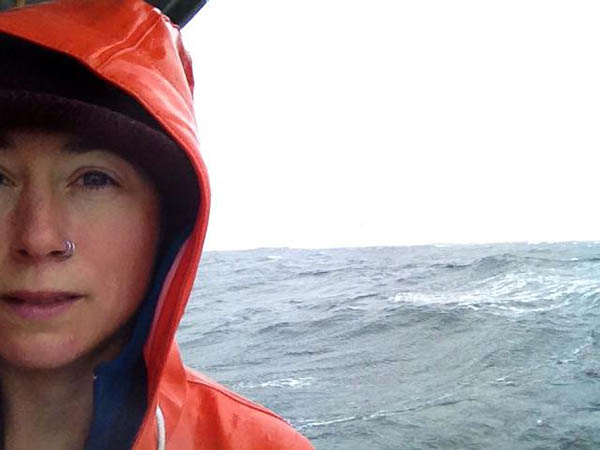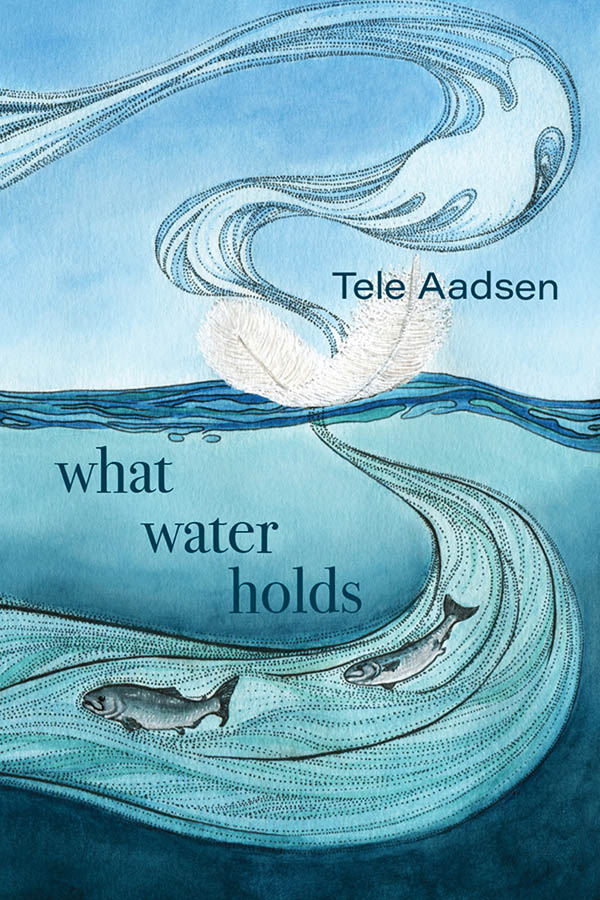Friends of salmon and wild places: have you written your letter for the Tongass National Forest yet?
As discussed in Protecting the Tongass, Part 1, the U.S. Forest Service’s budget for the Tongass has long been skewed. Timber/road development currently receive annual funding of $25 million, while habitat conservation/watershed restoration receive $1.5 million.
This disparity concerns me. As a commercial fisherman, I have a significant interest in protecting the delicate ecosystems that nurture salmon. And as someone who calls Southeast Alaska “home,” my identity is as rooted in the Tongass as the towering hemlock, spruce, and cedar that carpet our coastline.
Sitka Conservation Society is a longtime advocate for a more balanced forestry budget. I’m joining SCS in this effort, and invite you to do so, too. Our goal is to collect 200 letters requesting increased funding for restoration and salmon protection by February 1. Can you take a moment to share your support? In February, SCS will hand-deliver our combined messages to Washington D.C.; please email your letter to andrew@sitkawild.org.
Not sure what to write? I’m sharing my message here; please feel free to use this example as a resource for your own letter. (Stats provided by a 2011 survey conducted by the Alaska chapter of the Nature Conservancy.)
*****
Dear Undersecretary Sherman, Chief Tidwell, Senator Murkowski, & Senator Begich,
My name is Tele Aadsen, and I’m a second-generation salmon troller in Southeast Alaska. Salmon trollers are predominantly family operations; I began fishing at the age of seven, in 1984. My mother was one of a handful of female skippers at that time, and we comprised the only all-female troller. For the past 7 years my partner and I have run our own boat, the 43-foot Nerka, which he grew up on and took over as a 22 year old. Hook-and-line caught, we process and freeze our catch at sea, marketing a premium quality wild salmon to restaurants, grocers, and food co-ops across the U.S. This is our sole source of income.
Discussion of salmon sustainability frequently focuses on fisheries management and healthy oceans. Essential elements, yet incomplete. We must devote equal attention to the surrounding forests, which provide critical salmon habitat. In its streams, lakes, and ponds, the Tongass National Forest provides 17,690 miles of salmon habitat. Salmon are inextricably linked with the Tongass; the well-being of one directly impacts the other.
In Alaska, salmon mean far more than a meal or a paycheck. In a 2007 survey, 96% of Alaskans said salmon are essential to our way of life. In our remote region, where many communities are island-based, closed systems, the term “way of life” refers more to practical necessity than sentimentality. Nearly 90% of rural households in Southeast Alaska depend on salmon.
What does a dependency on salmon look like? It looks like over 7000 jobs: men, women, and young people working on fishing vessels or in processing plants. In a tremendous ripple effect, fisheries contribute to local economies. In some of Southeast Alaska’s small communities, salmon are the local economy. Grocers, restaurants, hotels, cold storages and transport systems all flourish with healthy salmon runs. The combined economic value of commercial, sports, and subsistence salmon fishing, plus hatchery operations, is estimated at $986.1 million.
The economic impact of salmon doesn’t stop at Alaska’s border. Many fishermen spend the off-season in the Lower 48, enhancing the economy of multiple states. In 2009, my partner and I were able to purchase our first home in Washington, where we frequently have boat work done. Maintaining a safe, successful fishing vessel is an expensive, on-going effort: all across the West Coast, harbors, boat yards, diesel mechanics, refrigeration services, craftsmen, fiberglass workers, metal fabricators, gear stores, and other marine service professionals are direct beneficiaries of our good salmon seasons.
Beyond these enormous economic considerations, the Tongass is one of the few remaining wild places in America, a rare ecosystem of deep cultural significance, beauty and wonder. I’m profoundly grateful for my life as a commercial fisherman, and hope to continue providing quality wild salmon to Americans in a responsible manner. I’m committed to protecting the natural resources that allow this unique profession, and want to thank you both for joining me in this effort. Thank you for advocating for a healthy, sustainable future, prioritizing funding for watershed restoration and salmon habitat in the Tongass.
Sincerely,
Tele Aadsen, MSW
F/V Nerka
*****
Please take a moment to write a letter voicing your support for a more balanced forestry budget. Your message doesn’t have to be long, but Sitka Conservation Society does need it by February 1 for hand-delivery to Washington D.C. In addition to channeling letters through andrew@sitkawild.org, you can, of course, send additional messages directly to Alaskan Senators Murkowski and Begich Forest Service Chief Tidwell (ttidwell@fs.fed.us), and Undersecretary Sherman (harris.sherman@usda.gov).
To me, these letters are more than advocacy. We’re writing love letters to the Tongass, based on our unique relationships with trees, salmon and Southeast Alaska. You all know my story… I’d love to hear yours. Why do you want to protect the Tongass? Please copy/paste your letter in the comments below. I’ll keep you posted on how we’re doing with our 200 letter goal. As always, I’m deeply grateful to each of you for your time and support. Best wishes to all.





Can I just forward yours and say, “What she said”?
Ha! Whatever you like, Kari — but you’ve got a pretty significant position of your own to speak from…
This is the letter I sent. You’ll notice I edited out the rude remarks about his mother (ha, ha).
Dear Chief Tidwell,
I am writing to you as a concerned citizen and Alaskan. In discussion with a friend in the fishing industry, one of many in that industry, the huge discrepancy in funding for conservation versus funding for logging came up. This discrepancy has got to change.
Well maintained forests are a fundamental part of the ecosystem which allows for the wonderful fish we catch, smoke, bake, sell, eat. Well maintained forests are crucial for the fishing industry, which is much larger than the logging industry, and thus the economy of Southeast Alaska and the surrounding region.
This is in addition to the other benefits forests bring which are numerous (clean air, hunting, tourists, timber). With a budget titled toward development you’re risking all these benefits and putting many precious things in jeopardy.
My father was a logger and my brother is a fisherman I know the value of these jobs well and I’m sure you do too. I’m asking you to do your very best to make sure that there’s a future for the forest, the fish and the people who depend on both.
Sincerely,
Ryan J. Barber
This is fantastic, Ryan — I love that your perspective is shaped by both logging and fishing family members. Thanks so much for taking the time to advocate for the Tongass, and for sharing your letter here.
Whole watersheds of the Tongass Forest were logged during the pulp mill years. Please place salmon and recreation far ahead of more roads in and logging in our National Forest.
Thank you.
Dee Longenbaugh
Wonderful, Dee! Thanks so much for writing, and for sharing your example with Hooked.
Thanks for spreading the word Tele. This is the letter I sent:
Dear undersecretary Sherman,
I am a commercial salmon troller in S.E. Alaska. My boat is the Dryas, she is a 42 ft. overall sailing troller that burns 1⁄2 gallon per hr. and can sail to the fishing grounds. I am proud of my operation and trying to be consistent in my efforts to make a living sustainably in challenging times. ocean acidification issues threaten and climate change is effecting our weather and our future. I realize that from what you shared with us on your visit to Sitka you share my values.
I am writing you to say thank you and encourage you in your advocacy for watershed restoration in the tongass. Our salmon and our forest are essentially one and the same. Many of the old clearcuts are reaching a dangerous point. The old stumps that hold the streambanks are rotting out and logging road culverts are disintegrating. Over 7000 jobs in S.E. are salmon related while less than 200 are timber related yet we continue to see a forestry service budget still skewed toward timber and road construction. I would like to ask you if you think shifting some of the $25 million dedicated to timber/roadbuilding to the $1.5 million assigned to fisheries, watersheds, and salmon restoration is possible and encourage you to advocate for that shift.
President Obama asked us to keep up the pressure on him to do the right thing. I respectfully submit to you my effort to do just that.
Sincerely
Spencer Severson
Many thanks to YOU, Spencer! Andrew shared your letter with me when I was trying to gather thoughts for my own, and it was tremendously helpful. I was thankful for the example of your words, and fascinated to learn about the Dryas. Much respect and appreciation for the path you walk (and the drag you sail to.)
Thank you for your work! Here’s my letter.…
Dear Undersecretary Sherman, Chief Tidwell, Senator Murkowski and Senator Begich,
My dad and I moved to Southeast Alaska when I was 6. He has spent his life as a commercial fisherman and diver as well as an environmentalist. His path as a resource extractor and a steward to the natural world is not
uncommon among the people of the northwest who recognize their complex role and responsibility to both. I learned this from my dad and I learned this from the Tongass.
From falling in love with the forest to the basic, daily dependancy on it’s health, our relationship with wilderness is key to our future. Our job as humans who rely on it’s abundance, as people of the salmon and of the cedar, is to find a balanced way to live and work from and for an ecosystem.
Equilizing the forestry budget is a very real way to implement this path of balance. 25 million dollars for timber and roads compared to 1.5 million for conservation and restoration of the Tongass does not reflect our love, respect or advocacy for our very own lives and livelihoods nor does it reflect our love, respect and advocacy for the health of the Tongass National Forest.
Please lead us in making the changes to our forest service budget to represent our values more accurately.
Sincerely, Ida Severson